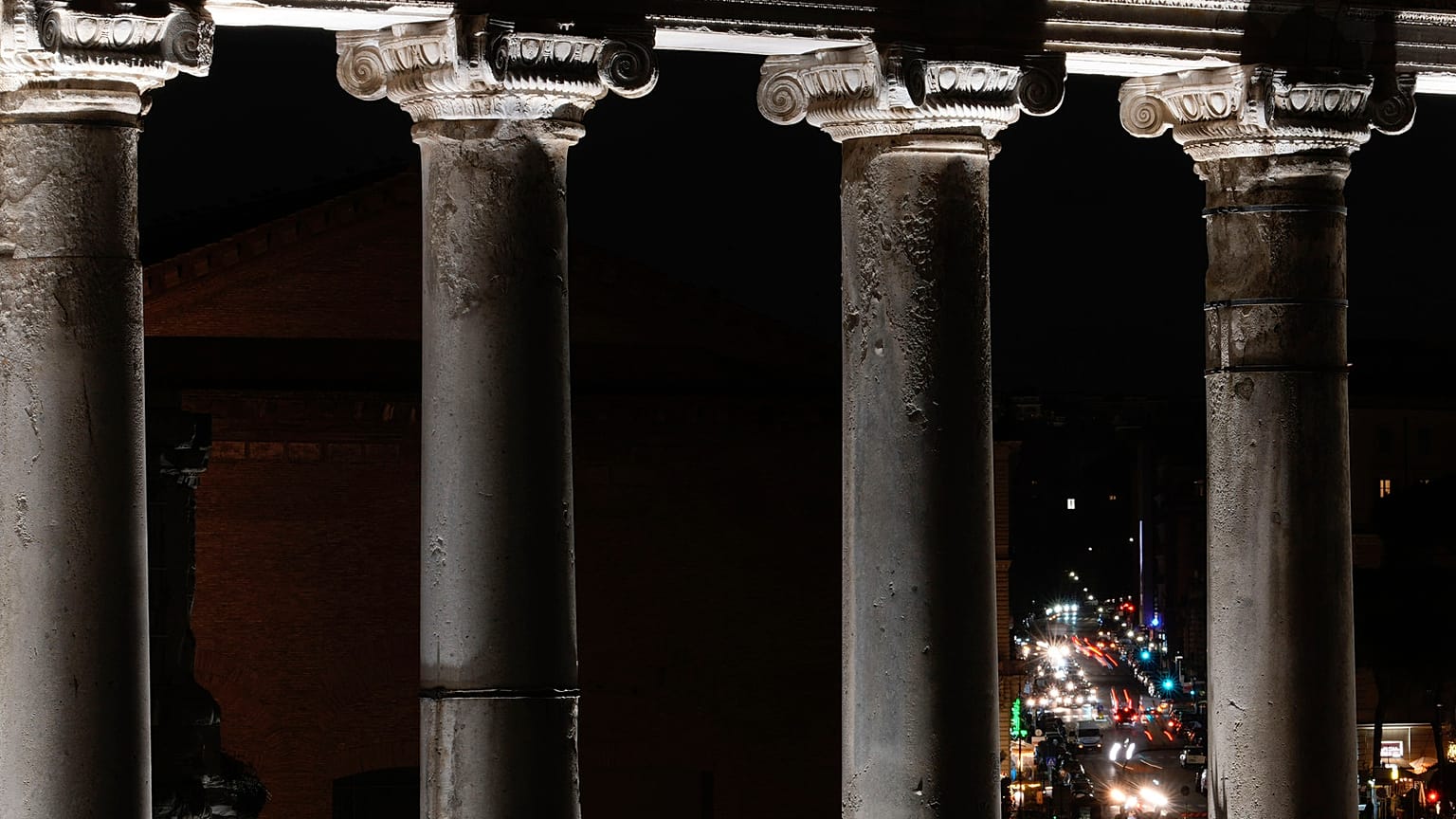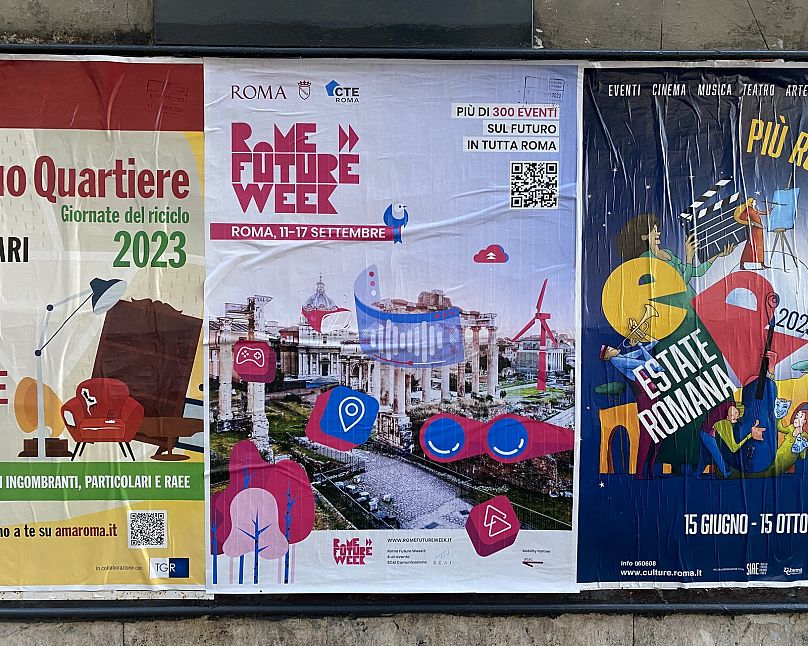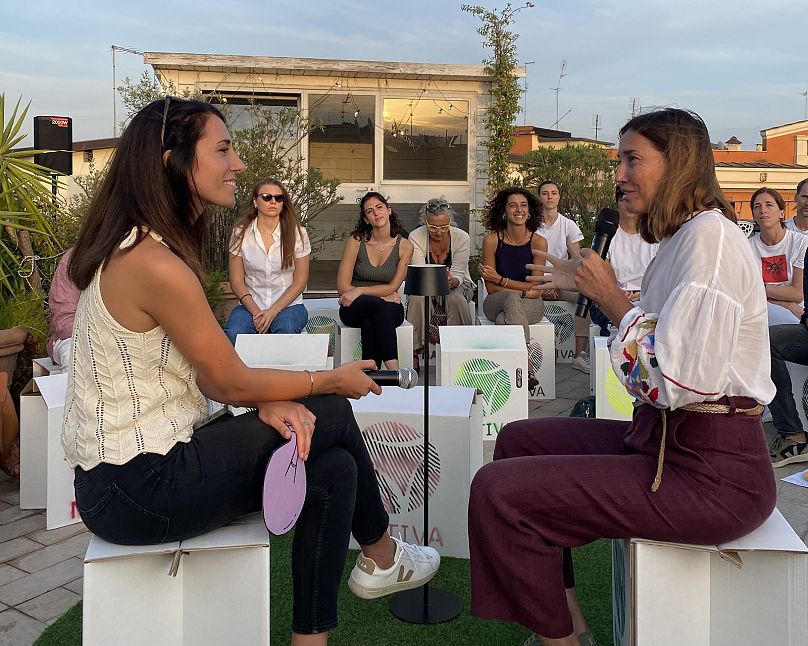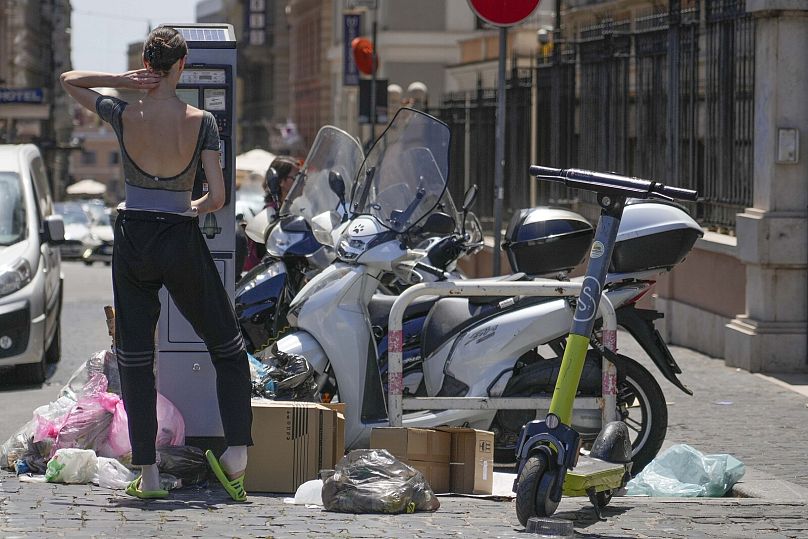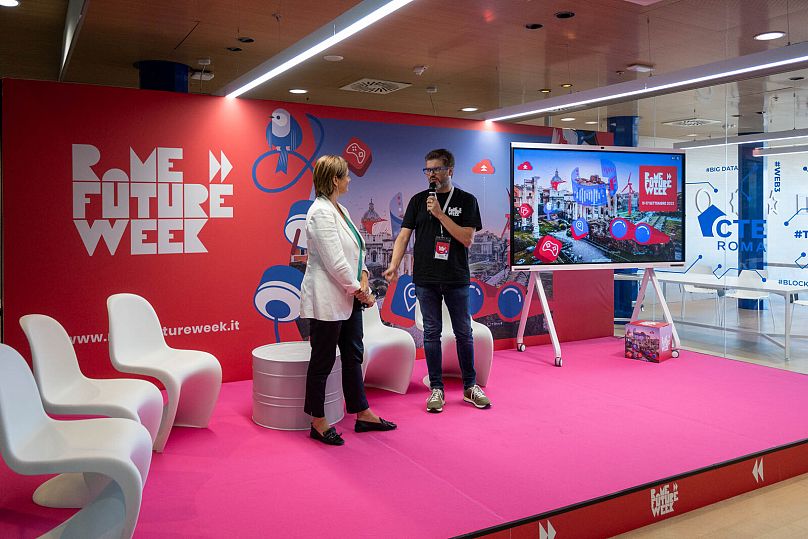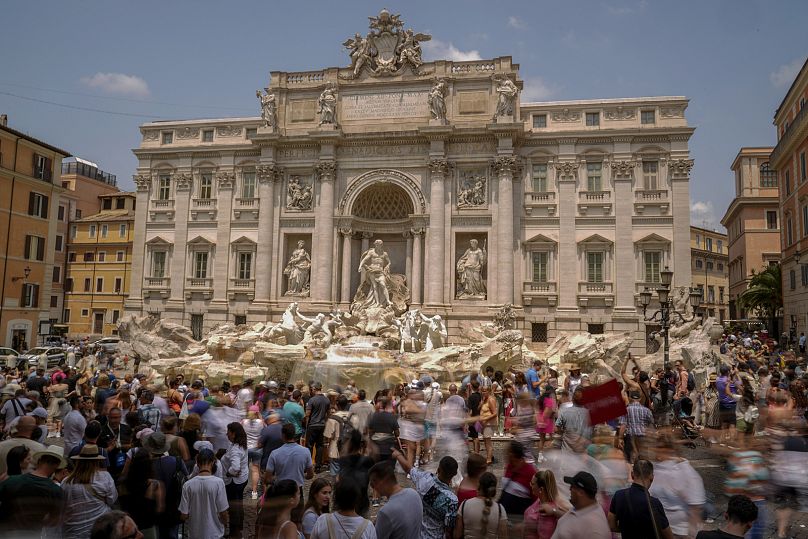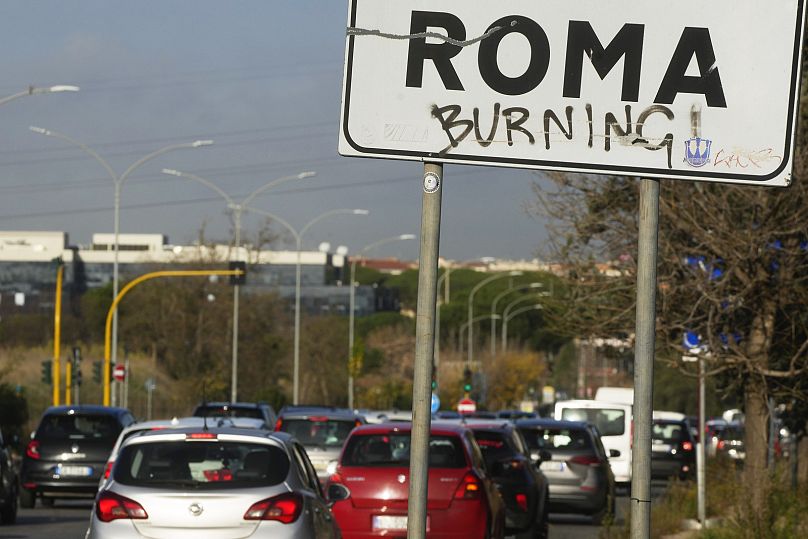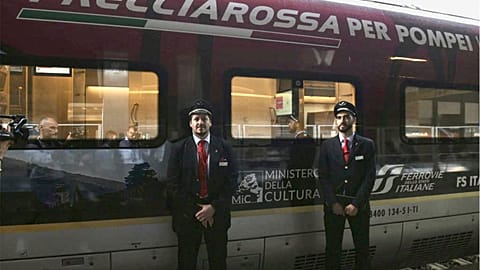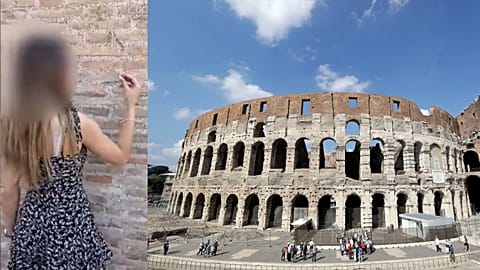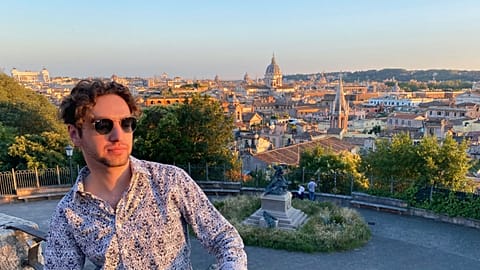The Italian capital has just held its first "Future Week," looking at solutions to the challenges of tomorrow. But can a city notoriously stuck in the past ever see real change?
"The Eternal City" - as Rome has been affectionately called for over two millennia - is globally renowned for its priceless monuments and religious significance, making it a coveted destination for both pilgrims and those seeking the epicurean pleasures offered by the dolce vita lifestyle.
 ADVERTISEMENT
ADVERTISEMENT
 ADVERTISEMENT
ADVERTISEMENT
But the Italian capital is often accused of being stuck in its past, resting on its dusty laurels as a string of local administrations rely on tourism to make up for a lack of economic and urban innovation.
But one new proposal aims to find solutions to prepare the Italian capital for the decades to come.
"Rome Future Week", which included almost 400 events held throughout the city this month, aimed to showcase existing examples of positive change in motion while addressing future challenges.
But can "Rome Future Week" provide the impetus needed to equip the Italian capital for its future obstacles? Or is it merely another case of talk and no action in a city so notoriously resistant to change?
What is 'Rome Future Week' and its aim?
Digital communication manager Michele Franzese came up with the idea at the height of the COVID-19 pandemic.
"We wanted to celebrate the Rome of innovative businesses and organisations that are leading the way into the future," he told Euronews Next.
Indeed, in spite of the Italian capital's reputation for looking to the past more than it does to the future (or even its present), the city is already at the forefront of various exciting developments.
Rome's international airport, Leonardo da Vinci or 'Fiumicino', has been ranked Europe's best six years in a row, and as the city readies itself for the 2025 Jubilee, it is in the midst of a major process of urban optimisation.
It's made headway on the sustainability front: approximately one-third of residents use public transport and one-fifth commute on foot (although the latter could also be more of a testament to the city's notoriously erratic bus system, inadequate metro coverage and widespread traffic congestion).
"Rome is already home to innovation, but it isn't well-known," the event organisers claim.
Throughout the course of "Rome Future Week", the city brought together entrepreneurs, creators and leaders from different fields to highlight the best of what is on offer.
A whole gamut of different types of events were held - ranging from feminist panel discussions to exhibits and augmented reality guided tours of ancient monuments.
'10 years down the line, people will come and study Rome'
"Imagining" the future of Rome was the topic of one event, hosted by purpose-driven consulting company NATIVA, which brought together local politicians, journalists and activists.
The event's setting was quintessentially Roman - a spacious rooftop terrace in the city's bohemian San Lorenzo neighbourhood.
The setup, on the other hand, is far less traditional. With cardboard stools set up in concentric circles for a participative 'fishbowl' discussion, it called upon audience members to express their thoughts by speaking on a revolving central platform.
Among the speakers was former Italian education minister, Lorenzo Fioramonti, who outlined an optimistic vision of the city grounded upon a "slow living" future model.
"I don't believe Rome is stuck in the past," he told Euronews Next. "Rome is about living well, about living a healthy life. A city where we look more at quality than quantity. I don't want Rome to become a fast-paced, highly competitive city, its future is all about slowing down and enjoying the pleasures of life."
"If we do this, in 10 years down the line, people will come and study Rome, and replicate it in New York, Berlin, and London".
Once the discussion was opened to the public, however, more critical voices emerged.
Among the issues audience members highlighted were the cost of living crisis, violence, lack of opportunities for younger generations, the climate crisis, and overlooked racial and other social divisions.
Can Rome tackle its age-old woes?
Many of Rome's problems, namely the purported incompetence of local administration, have become a major lightning rod for controversy all over Italy, and often dominate discussions during local and national elections.
Franzese, the "Future Week" organiser, told Euronews Next that the city should focus on breathing life into the business sector as well as better urban planning and services.
But he avoided directly mentioning the biggest demon haunting Rome: trash — and the city's chronic struggle to find a place to dump it.
The problem is evident as soon as you leave the city's tourist heart: pavements are strewn with litter, giant heaps of garbage fester under the blazing sun, and dumpsters are overflowing.
A mixture of structural issues, poor public services and insufficient environmental awareness among locals have joined forces to create a garbage leviathan.
Part of the problem started a decade ago when the city's former landfill - Malagrotta - was forced to shut down for violating EU environmental standards. Rome now ships much of its garbage abroad, including to Austria.
The current centre-left administration, voted in two years ago, was elected on the promise of sweeping changes — and, most prominently, sweeping the streets by building a new waste-to-energy processing plant.
But the plant's construction has stalled due to heated political opposition, and recent investigations, including a report published in The New York Times, show how the city is still inundated with uncollected garbage.
"Rome Future Week" did not shy away from addressing the city's trash woes, joining forces with Retake Roma, a non-profit citizens' organisation fighting urban decay.
But for a problem as deeply structural and political as Rome's waste management, there are no quick-fix remedies - and "Rome Future Week" is unlikely to have made any significant headway on this front.
What new challenges does the city face?
The city's existing troubles, however, are expounded by a considerably fresher set of problems.
Part of these are economic in nature. The global inflation scourge and post-COVID deluge of tourists are consequently driving up rent.
Over in the San Lorenzo district - which houses the city's biggest university and much of its student body - exorbitant apartment costs are hidden behind scruffy facades and unpretentious eateries which would give the neighbourhood an otherwise affordable appearance. A quick scan through online listings shows that the cheapest single-bedroom flats come in at €650-950 a month, and can easily exceed the €1,000 mark.
And while rent is skyrocketing, salaries lag behind, making the cost of living for young people especially unsustainable - so much so that students of the city's Sapienza University have camped outside of its campus to protest.
"Rome Future Week" did not skirt the issue: one of their initiatives was a hackathon with the association GenQ, which aimed to get young people involved as a way to find "innovative" solutions to the housing crisis.
Recently, the country's right-wing, Giorgia Meloni-led government has discussed solutions to the more nefarious side effects of over-tourism by regulating holiday rentals, which could potentially ease the situation.
But out of all the challenges Rome is facing, the biggest elephant in the room could be the climate crisis as the Italian capital is particularly vulnerable to its effects.
A destructive flood is not a gloomy hypothesis but a reportedly looming prospect that experts have already forecast as possible in the not-too-distant future.
To make matters worse, the city is also highly exposed to other side effects of climate change, including droughts and wildfires.
"Our goal cannot only be to solve the problems [of climate change] but to facilitate discussions," Franzese told Euronews Next.
"[W]e offered concrete solutions to prevent and reduce food waste - attempting to minimise the impact of our actions with compensation tokens. Additionally, all our events were completely plastic-free."
All talk and no action? Or can 'Rome Future Week' affect real change?
"Rome Future Week" may have just concluded, but some say it has already left a mark.
Organisers claim over 30,000 people participated in over 380 events, and social media views reached 7 million. The initiative's success has already sealed its place in next year's calendar, as another "Future Week" will be held in September 2024.
"Tens of thousands of citizens are ready to build a new, cleaner, more sustainable and socially conscious Rome," declared Franzese.
City councillor Monica Lucarelli concurred: "This is just a start".
But whether a successful week-long initiative can actually translate into more concrete results is another matter.
There's a common saying in Roman dialect: Roma è santa, ma er su popolo boja ("Rome is holy, but its people - not so much").
The ingrained cynicism common to the Roman mentality is grounded upon an age-old realisation: when you're shackled by bureaucracy and inefficient governance, change is often too little and too late.
"Rome Future Week" is certainly a start and an illustration of the bustling talent living in the Italian capital.
But in a city so deeply buried under an accumulation of problems, it's merely the beginning of an uphill battle whose outcome is still far from certain.














